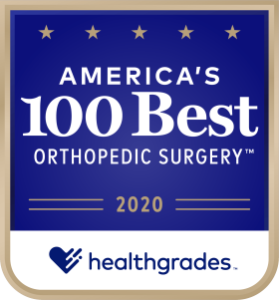Knee replacement surgery is one of the most common and successful procedures for relieving chronic knee pain caused by arthritis, injury, or degeneration. However, many patients are surprised by the level of pain they experience in the days and weeks following surgery. At Great Lakes Orthopaedics, we understand that managing expectations and recovery is a key part of the healing journey.
 Understanding Post-Surgical Pain
Understanding Post-Surgical Pain
It’s important to know that pain after knee replacement surgery is a normal part of the healing process. During surgery, your body undergoes significant trauma—even if it’s carefully controlled and expertly performed. Muscles, ligaments, and bone are manipulated or replaced, and your body needs time to recover.
Post-operative pain is generally caused by:
- Tissue healing: Surgical incisions and deep tissue disruption cause inflammation, swelling, and discomfort.
- Nerve irritation: Temporary nerve pain or sensitivity can result from the surgical area being disturbed.
- Rehabilitation efforts: Movement and physical therapy are essential for a successful outcome, but they can initially cause soreness and stiffness.
How Long Will the Pain Last?
Most patients experience the most intense pain within the first 1–3 weeks after surgery. As swelling decreases and physical therapy progresses, pain typically begins to subside. By 6–12 weeks, many patients notice significant improvement, though mild discomfort may linger for several months.
Every recovery is unique, and factors such as age, general health, activity level, and adherence to rehabilitation all play a role in your personal healing timeline.
Managing Pain After Knee Replacement
At Great Lakes Orthopaedics, our comprehensive post-operative care plans are designed to minimize pain and help you recover safely and efficiently. Pain management options may include:
- Prescription medications
- Ice therapy and elevation
- Targeted physical therapy
- Guided mobility exercises
- Anti-inflammatory treatments
Clear communication with your orthopedic surgeon and therapy team is key. If pain persists beyond the expected timeline or becomes severe, it’s important to report these symptoms to rule out complications such as infection or implant issues.
Setting Realistic Expectations
Knee replacement surgery is not a quick fix—but it is a long-term solution. Understanding the recovery process and knowing that some discomfort is part of the healing journey can help ease frustration and improve your overall experience.
The end goal? Long-term relief from chronic knee pain, improved mobility, and a better quality of life.
Get Expert Knee Replacement Care
If you’re considering knee replacement surgery or are currently recovering and need support, trust the experienced team at Great Lakes Orthopaedics. Our specialists are committed to helping you return to the activities you love with expert surgical care and compassionate follow-up.
Contact us today to learn more or schedule a consultation.


 Understanding Post-Surgical Pain
Understanding Post-Surgical Pain


